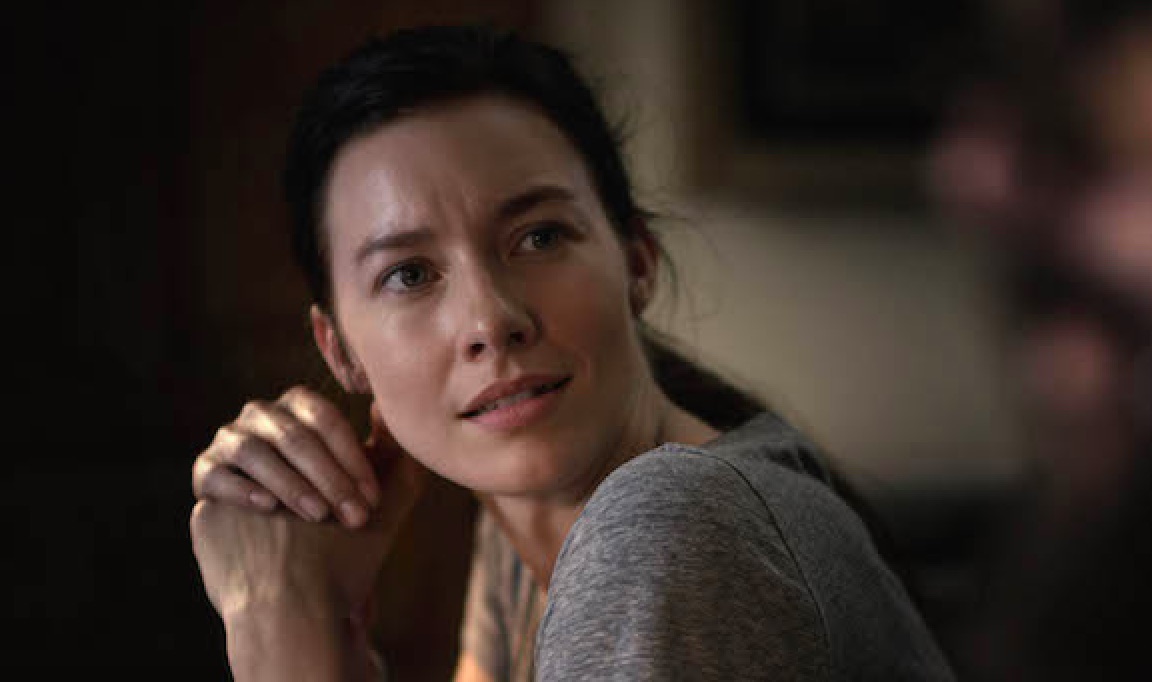OUR FIVE FAVOURITE SHORTS FROM NOHO CINEFEST 2020
 Thursday, December 10, 2020 at 8:02PM
Thursday, December 10, 2020 at 8:02PM
Like many of the world’s leading film festivals, the 2020 North Hollywood ‘NoHo’ Cinefest was bumped from its home at the Laemmle NoHo 7 theaters in April when COVID-19 took hold. Determined not to let their cinephile fanbase down, the festival organisers have reworked the event into a virtual edition, offering 14 features and a whopping 102 shorts for holders of an All-Access pass (the festival season's best buy at US$39.00).

With three days left of NoHo CineFest, SCREEN-SPACE are offering a ‘starter plate’ of five superb short films for lovers of seriously fine cinema (and of the features, make time for Jacob Burn’s sci-fi shocker Shifter and Dan Asma’s bighearted doco Cinematographer…)
 MALOU (Dir: Adi Wojaczek; Cast - Romina Küper, Veronica Ferres, Charles Rettinghaus, Matilda Herzog; Germany, 15 mins) From the Program: The young dancer Malou is irresistibly fighting for her dream of a career on the big stage. After years of struggle and rejection, she suddenly receives her once-in-a-lifetime chance - leading up to an unexpected reveal.
MALOU (Dir: Adi Wojaczek; Cast - Romina Küper, Veronica Ferres, Charles Rettinghaus, Matilda Herzog; Germany, 15 mins) From the Program: The young dancer Malou is irresistibly fighting for her dream of a career on the big stage. After years of struggle and rejection, she suddenly receives her once-in-a-lifetime chance - leading up to an unexpected reveal.
I’m watching this, why? Frankly, we saw the ending coming, but that in no way lessened the wrenching emotion of Adi Wojaczek’s beautifully rendered dance drama. In 15 short minutes, the wonderful Romina Küper (pictured, right) generates enough investment in the title character’s plight, the end of the film feels very much like the beginning of a wonderful story.
THE MARK OF THE BANSHEE (Dirs: Nicol Eilers; Cast - Chloë Caro, Maddy Rathbun, Pina Sbrocca, Melissa Wiehl; U.S.A., 14 mins ) From the Program: A single mother struggles to defend her pregnant teenage daughter from the ancestral curse of a Banshee who's come back to claim her.
I’m watching this, why? The contemporising of ages-old demonic lore by placing it in the context of a modern ‘teen pregnancy’ narrative (helped immeasurably by lead performers Chloë Caro and Maddy Rathbun). Oh, and it’s bloody scary! There’s a certain Raimi-esque quality to the screeching she-demon that conjures legit chills.
 WOMXN (Dirs: Tara Lynn Rye, Magen Ashley Young; Cast - Tara Lynn Rye, Nzinga Moore, Jenalyn Culhane; U.S.A., 4 mins) From the Program: Womxn is a powerful visual poem about sexual assault. 28 women of all different backgrounds gathered to perform the same text. Not only does this piece bring awareness to the staggering frequency of sexual assault against women, it explores why so many of us remain silent. Womxn illustrates how together we can begin to heal one another with our voices.
WOMXN (Dirs: Tara Lynn Rye, Magen Ashley Young; Cast - Tara Lynn Rye, Nzinga Moore, Jenalyn Culhane; U.S.A., 4 mins) From the Program: Womxn is a powerful visual poem about sexual assault. 28 women of all different backgrounds gathered to perform the same text. Not only does this piece bring awareness to the staggering frequency of sexual assault against women, it explores why so many of us remain silent. Womxn illustrates how together we can begin to heal one another with our voices.
I’m watching this, why? It is as potent a declaration of unity and strength as you are likely to see on any 2020 screen, big or small. In stark black-&-white, directly to camera, the participants lay bare the pain and sorrow of sexual violence, but also the defiance and will to recover and fight it has stirred in them. A remarkable statement.
ANACRONTE (Dirs: Raúl Koler, Emiliano Sette; Argentina | Mexico, 15 mins) From the Program: Anacronte and the Sorcerers of Evil, without any emotion and fulfilling their destiny, put to the test humanity's happiness in a struggle that, in short, has each of us as winners and losers.
I’m watching this, why? The passage of the human soul through a vast netherworld dictated by the random impact of fate is brought to stunning life in this animated masterpiece. Riffing on how our spirit can often overcome real world pain by unshakeable faith in one’s own will to survive, co-directors Raúl Koler and Emiliano Sette have crafted a vision of the afterlife as breathtakingly captivating as Vincent Ward’s similarly-themed 1998 feature, What Dreams May Come.
 MANHUNT (Dir: Jack Martin; Cast - Casey Lynn, Derek Russo, Stasha Surdyk; U.S.A., 9 mins) From the Program: In the middle of the night, a dangerous fugitive on the run seeks shelter just as an adventurous young girl breaks out of her bedroom. Their two worlds collide.
MANHUNT (Dir: Jack Martin; Cast - Casey Lynn, Derek Russo, Stasha Surdyk; U.S.A., 9 mins) From the Program: In the middle of the night, a dangerous fugitive on the run seeks shelter just as an adventurous young girl breaks out of her bedroom. Their two worlds collide.
I’m watching this, why? Superb production values and visual style, the likes of which announce Jack Martin as a young director ready for feature-length genre work. But also a terrific lead performance by Casey Lynn, whose chemistry with tough guy Derek Russo and character arc through such stages as fear, compassion and understanding mark her as an actor to watch.
 Film Festival,
Film Festival,  Independent Film,
Independent Film,  Short Film
Short Film 














